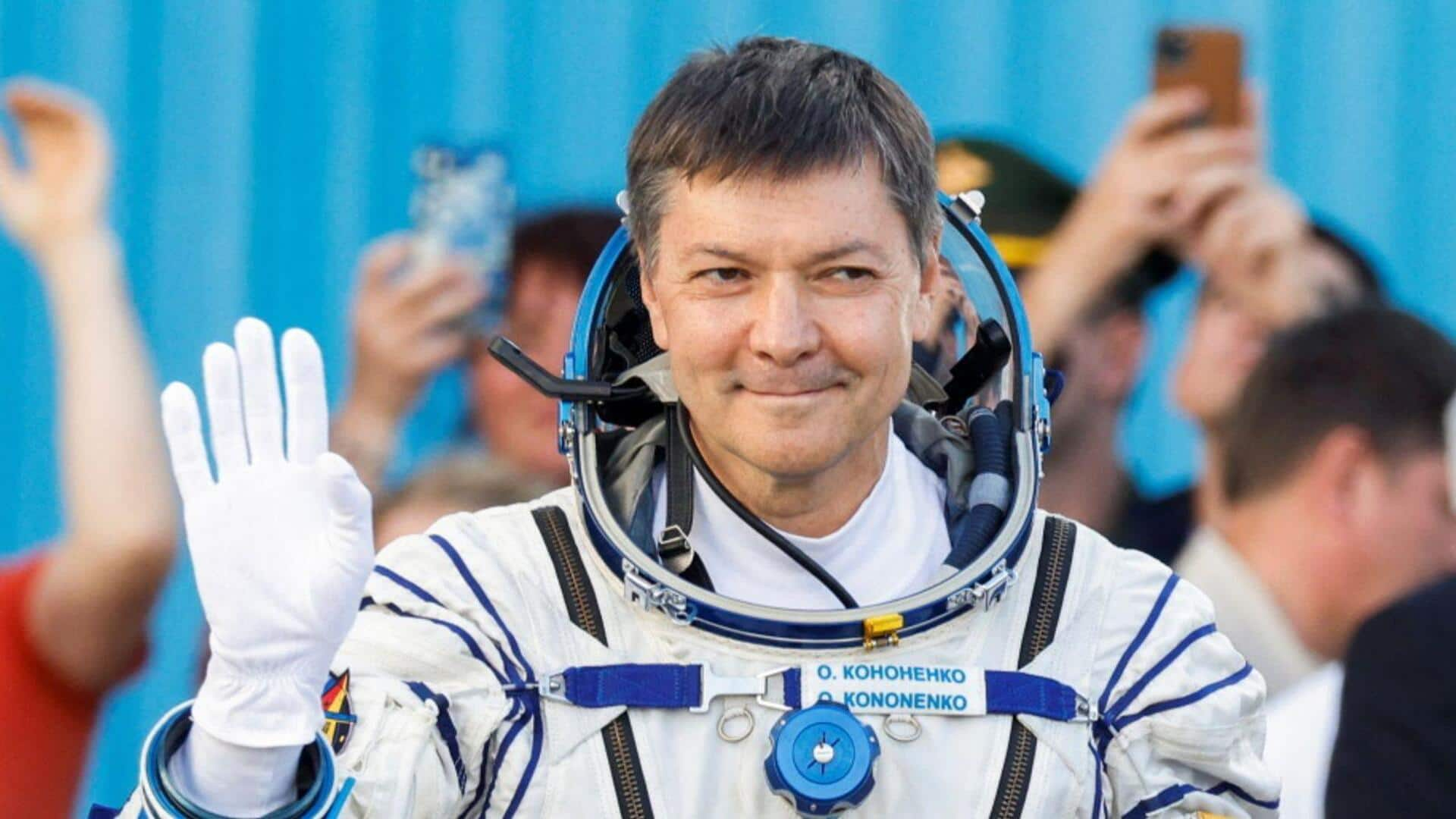
Meet Oleg Kononenko: Record holder for longest time in space
What's the story
Russian cosmonaut Oleg Kononenko has broken the world record for the longest time spent in space. He surpassed fellow Russian Gennady Padalka's record of 878 days, 11 hours, 29 minutes, and 48 seconds. As of Sunday morning (October 4), Kononenko achieved this milestone during his fifth spaceflight, orbiting 423km away from Earth. His current mission will end in late September. By that time, he will have logged 1,110 days in space.
Profile
Kononenko's journey and achievements
Kononenko (59) began his space career as an engineer, and started training as a cosmonaut at 34 when he joined the International Space Station (ISS) program. His first spaceflight occurred in April 2008 and lasted for 200 days. In a Tass (Russian state news agency) interview, he stated, "I am proud of all my achievements, but I am most proud that the record for the total duration of human stay in space is still held by a Russian cosmonaut."
Problems
Challenges and personal sacrifices
Despite his impressive achievements, Kononenko recognizes the personal sacrifices he made during his time in space. He told Tass, "It is only upon returning home that the realization comes that for hundreds of days in my absence the children have been growing up without father. No one will return this time to me." He also noted that advances in technology have made preparations for each flight more challenging, and that the cosmonaut profession is becoming increasingly complex.
Future
ISS cooperation and Russia's space program
The ISS remains a rare example of international cooperation between Washington and Moscow since Russia's invasion of Ukraine. In December, Roscosmos announced that a cross-flight program with NASA had been extended until 2025. However, concerns have emerged regarding the reliability of Russia's space program, which has faced funding shortages, corruption scandals, and failures, in recent years. To recall, the Russian portion of the ISS experienced its third coolant leak in less than one year, in October 2023.